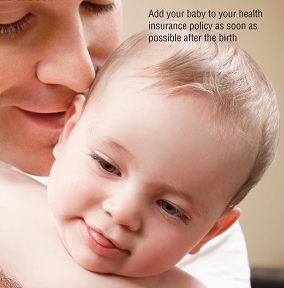Many women will be happy to find out they are soon going to have a baby. They will surely need some first trimester pregnancy tips as they go through the most critical period of carrying a baby. Although the developing fetus is barely four inches long, its major organs have begun to form and function. So, enjoy this special moment in your life, as you pick out a name and plan for the baby's coming!
10 First Trimester Pregnancy Tips You Must Know
Now that you have confirmed you are pregnant, you’ve probably made a dash to a bookstore to learn more about preparing for the baby, or perhaps to the shops to get some new maternity clothes. But now it is time to focus on something more important, especially on the first trimester – your health and the baby's well-being.
1. Get a Healthcare Provider
 It is important to get prenatal care from a doctor, such as an OB/Gyn, to ensure that you and your baby are healthy throughout the pregnancy. Women who do not get adequate prenatal care are more likely to have low birth-weight babies of poor health than those who see doctors regularly. Prenatal healthcare involves seeing a doctor once a month for the first six months, twice monthly during the 7th and 8th months, then weekly thereafter.
It is important to get prenatal care from a doctor, such as an OB/Gyn, to ensure that you and your baby are healthy throughout the pregnancy. Women who do not get adequate prenatal care are more likely to have low birth-weight babies of poor health than those who see doctors regularly. Prenatal healthcare involves seeing a doctor once a month for the first six months, twice monthly during the 7th and 8th months, then weekly thereafter.
2. Keep Hydrated
 The American Pregnancy Association recommends drinking plenty of fluids during pregnancy to keep the body well hydrated as the mother's blood volume increases for supporting “two”. It also helps prevent fatigue, constipation, and preterm labor.
The American Pregnancy Association recommends drinking plenty of fluids during pregnancy to keep the body well hydrated as the mother's blood volume increases for supporting “two”. It also helps prevent fatigue, constipation, and preterm labor.
3. Maintain a Healthy Diet
 More than ever, you need to eat a healthy diet that is rich in nutrients to keep yourself and the baby healthy and strong. Highly recommended foods include protein-rich sources such as meat, eggs and fish, whole grains, dairy products like yogurt and milk, fruits such as apples and grapefruit, and vegetables such as leafy greens, carrots and broccoli.
More than ever, you need to eat a healthy diet that is rich in nutrients to keep yourself and the baby healthy and strong. Highly recommended foods include protein-rich sources such as meat, eggs and fish, whole grains, dairy products like yogurt and milk, fruits such as apples and grapefruit, and vegetables such as leafy greens, carrots and broccoli.
Warning: Avoid eating undercooked meat, raw eggs, fish, shellfish, and unpasteurized cheese.
4. Decide When to Announce the News
 Almost everyone will be excited to announce the good news to family and friends, but it may be best to relax first and wait until the pregnancy is stable or well-established. After all, miscarriages are common in the first 3 months of pregnancy, and it will be a real disappointment if anything like this happens. So before you make any life-changing decisions, such as quitting your job, give yourself time to discuss your options with your partner and prepare for a healthy motherhood.
Almost everyone will be excited to announce the good news to family and friends, but it may be best to relax first and wait until the pregnancy is stable or well-established. After all, miscarriages are common in the first 3 months of pregnancy, and it will be a real disappointment if anything like this happens. So before you make any life-changing decisions, such as quitting your job, give yourself time to discuss your options with your partner and prepare for a healthy motherhood.
5. Change Your Lifestyle
 Quit smoking and stop alcohol drinking. Studies show that tobacco and alcohol have serious negative effects on a baby's growth and development during pregnancy and even during childhood. Reduce coffee intake, which may increase chances of miscarriage and other complications of pregnancy. Limit yourself to taking one cup of coffee per day (< 200 mg caffeine).
Quit smoking and stop alcohol drinking. Studies show that tobacco and alcohol have serious negative effects on a baby's growth and development during pregnancy and even during childhood. Reduce coffee intake, which may increase chances of miscarriage and other complications of pregnancy. Limit yourself to taking one cup of coffee per day (< 200 mg caffeine).
6. Deal With the Fatigue
 It is common for pregnant women to experience fatigue because the body uses up a lot of energy to nourish, protect and support a growing baby inside the womb. You will need more rest and sleep, so slow down your work, especially during weekends. Elevate your feet when you can and ask help from family and friends until you have more energy during the second or third trimester.
It is common for pregnant women to experience fatigue because the body uses up a lot of energy to nourish, protect and support a growing baby inside the womb. You will need more rest and sleep, so slow down your work, especially during weekends. Elevate your feet when you can and ask help from family and friends until you have more energy during the second or third trimester.
7. Cope With the Nausea
 Many women experience nausea and vomiting during the first trimester. Some people believe it is a natural way to protect the baby from harmful substances. Although this is normal, it can be quite uncomfortable. Fortunately, it usually goes away after the third month. To cope with nausea, try eating small meals consisting of bland foods, preferably carbohydrates, such as dry toast and saltine crackers. Avoid spicy and fatty foods. Acupuncture wristbands may help reduce your symptoms. Ask your doctor about taking vitamin B6.
Many women experience nausea and vomiting during the first trimester. Some people believe it is a natural way to protect the baby from harmful substances. Although this is normal, it can be quite uncomfortable. Fortunately, it usually goes away after the third month. To cope with nausea, try eating small meals consisting of bland foods, preferably carbohydrates, such as dry toast and saltine crackers. Avoid spicy and fatty foods. Acupuncture wristbands may help reduce your symptoms. Ask your doctor about taking vitamin B6.
8. Keep Your Nutrition Up
 Boost your nutrition by including various fruits and vegetables to your diet, as well as fish like salmon, and snacks like yogurt and walnuts. Store some power snacks in your car, desk or purse to relieve hunger. For morning sickness, munch on a light snack such as crackers, especially before getting out of bed. However, diet alone is not enough. To guarantee enough nutrients for you and the baby, you’ll need the help of some prenatal supplements. Supplements like folic acid, omega 3s and other prenatal multivitamin will be of great help for your pregnancy and delivery as well as baby’ health. Please remember to consult your healthcare provider before taking any as overdoing may cause problems in the baby.
Boost your nutrition by including various fruits and vegetables to your diet, as well as fish like salmon, and snacks like yogurt and walnuts. Store some power snacks in your car, desk or purse to relieve hunger. For morning sickness, munch on a light snack such as crackers, especially before getting out of bed. However, diet alone is not enough. To guarantee enough nutrients for you and the baby, you’ll need the help of some prenatal supplements. Supplements like folic acid, omega 3s and other prenatal multivitamin will be of great help for your pregnancy and delivery as well as baby’ health. Please remember to consult your healthcare provider before taking any as overdoing may cause problems in the baby.
9. Investigate Insurance
 Find out if your health insurance covers maternity benefits is equally important compared to all the other first trimester pregnancy tips. Check also if you can include your newborn baby to the family healthcare plan. It is best to get answers to your questions about basic health insurance issues to save you money and time when needed.
Find out if your health insurance covers maternity benefits is equally important compared to all the other first trimester pregnancy tips. Check also if you can include your newborn baby to the family healthcare plan. It is best to get answers to your questions about basic health insurance issues to save you money and time when needed.
10. Set a Baby Budget
 Excitement can make some women overspend during pregnancy. So try to set a budget for your maternity needs and baby needs. Before buying new items, see if you can borrow some, such as used cribs or beds. Family and friends may also be happy to give you gifts for your new baby, so stick to a budget and go slow on buying too many items.
Excitement can make some women overspend during pregnancy. So try to set a budget for your maternity needs and baby needs. Before buying new items, see if you can borrow some, such as used cribs or beds. Family and friends may also be happy to give you gifts for your new baby, so stick to a budget and go slow on buying too many items.
The following video tells you some more first trimester pregnancy tips through the experience of an excited mom:

